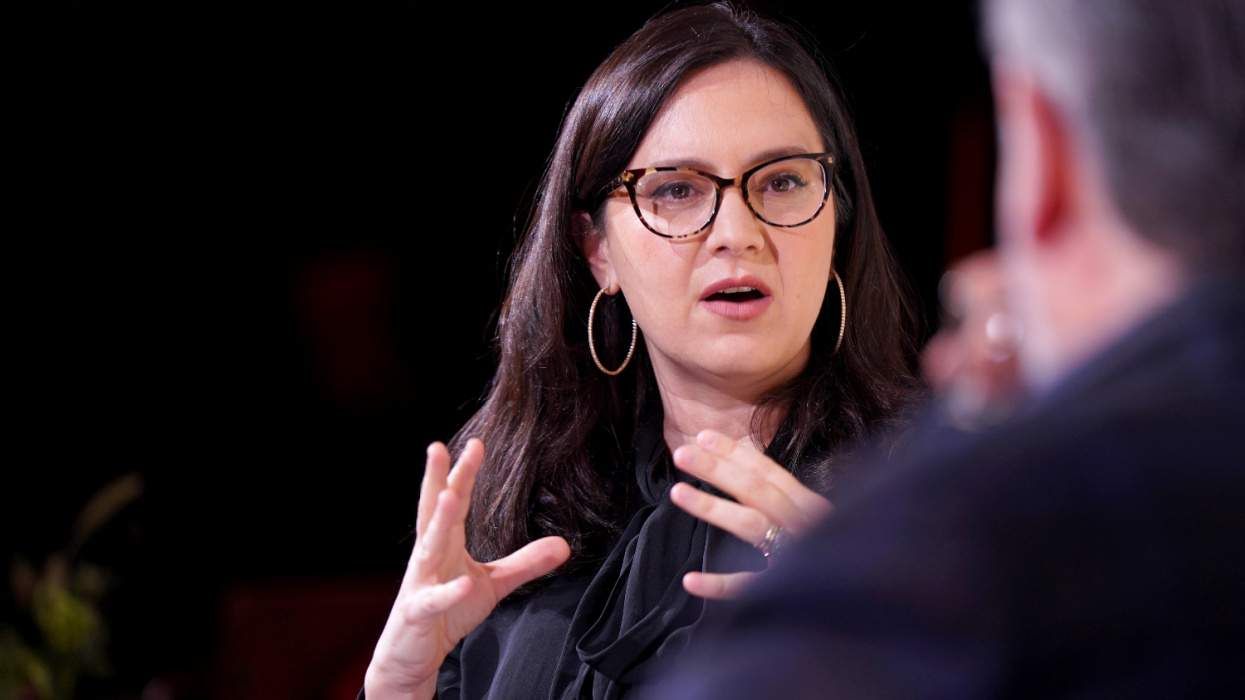That evening patrons of the Stonewall Inn experienced yet another raid by the police. Such intrusions were not uncommon -- police forces would break into queer spaces, intimidate those present, and arrest people for simply living their lives openly and freely. But this time, it was different. A spark ignited on June 28,1969. Enough was enough. Queer Americans at the Stonewall Inn rose up and fought back against the discrimination, shaming, and abuse. They stood up to be heard, to be seen, to be treated equally, and to be able to exist without harassment or violence.
The subsequent, spontaneous riots on Christopher Street gave rise to much of the contemporary LGBTIQ movement.
Two months ago we celebrated World Pride in New York, marking the 50th anniversary of when the movement took off. We remembered and celebrated the incredible achievements LGBTIQ organizations and activists across the world have fought for. Since then, predominantly colonial laws banning same-sex relations have steadily fallen across the globe, and same-sex marriage or partnership are available in almost 50 countries. Just this summer we celebrated notable wins across the world. Ecuador and Taiwan joined the family of countries where equal marriage is possible. Botswana and Bhutan decriminalized same-sex relations. And North Macedonia passed anti-discrimination legislation which explicitly mentions sexual orientation and gender identity.
There is no doubt that in 50 years we have come a long way. But it doesn't end here. As we look to the next 50 years, we must continue to fight, protest, and standup for our queer community. While particular challenges and priorities faced by LGBTIQ movements vary from country to country, and even community to community, there are a few key issues at stake that we must address as we look forward to the next 50 years.
Some form of setback always accompanies the path to progress. In recent years these setbacks have grown into a strategic, rigorous and determined backlash. Fundamentalism has expanded across the globe, with a corresponding increase in misinformation, fear-mongering and scape-goating of minority groups. In a ploy to energize and anger voting populations, as well as to detract from various (and real) problems in the country, LGBTIQ people are a particular target.
Backlash leads to stagnation at best, and to backsliding at worst. In Russia, for example, a law restricting "propaganda" of non-traditional sexual orientation led to bans on freedom of assembly or expression around LGBTIQ topics. In turn, the law gave the green light for hate and violence, which has, unsurprisingly soared. In the U.S., the Trump administration rolled back much of the progress in the recognition and protection of trans people brought in by the Obama administration. Moreover, it went further to introduce specific measures that exclude the human rights of trans people.
As Audre Lorde said: "Sometimes we are blessed with being able to choose the time, and the arena, and the manner of our revolution, but more usually we must do battle where we are standing." We can't wait for the backlash to pass. Passive engagement can see our movement lose hard fought progress in the blink of an eye. As such, in the years to come we have to battle it from where we stand, by becoming more robust, strategic, and intertwined with other intersectional movements fighting for human rights and equality of all.
Another key fight is confronting so-called "conversion therapy" practices, which aim to change sexual orientation, gender identity or expression, or to purportedly provide support for unwanted same-sex attraction or gender identity. The very existence and proliferation of "conversion therapy" is perhaps the epitome of what the LGBTIQ movement has been fighting against. The practice hinges on the belief that cisgender heterosexuality is the norm, while transgender and nonbinary identities, and/or same-sex attraction, fall outside social acceptability. Influential movements, in the name of religious or familial causes, push narratives attempting to change, suppress, or divert one's orientation or gender, even by brutal force if necessary.
OutRight Action International issued a new study on "conversion therapy" this week, showing that it takes place all over the world, and is shockingly banned in only four countries. The severe lack of state action to tackle these practices, despite their prevalence and harmful effects, is reminiscent of government inaction in the height of the AIDS crisis a few decades ago. The report sheds light on the global reach and lasting individual trauma of these barbaric practices. As long as practices like this exist, we have a lot of work to do. As a first response, OutRight is launching a program to tackle conversion therapy by working with activist and partner organizations in three African countries.
The last 50 years were largely about decriminalization, tackling discrimination, and recognition of same-sex love. As we look forward, our focus should also be on bodily autonomy. At this moment in time, only five countries base legal gender recognition on self-determination, without requiring psychiatric or court intervention or without invasive and expensive medical procedures. We have only just begun talking about the unnecessary and traumatic "normalizing" surgeries intersex children are subjected to, without their permission and often without their knowledge. Only three countries ban such surgeries.
And yet positive steps are being taken. Last month was the first time UN Women hosted an event regarding gender equality for trans and nonbinary identities. The time has come where we see women's and human rights movements together with LGBTIQ movements: embracing the individual's right to determine who they are and how they express themselves.
As we march toward 2069, I am hopeful that the Pride march celebrating the centenary of the Stonewall riots will truly be a celebration -- where queer people are not just tolerated but embraced; where the movement is not only recognized but seen; and where we are not a subculture but on the path to true equality and sustainable human rights.
Aalap Shah is a member of the Board of Directors of OutRight Action International.















